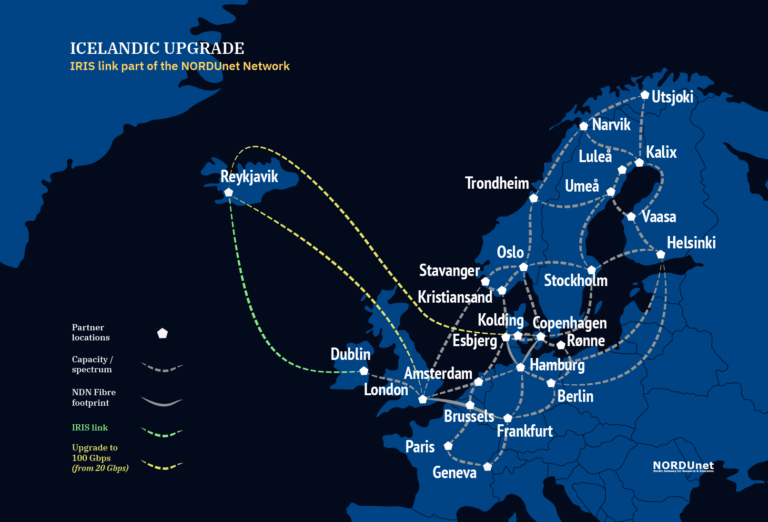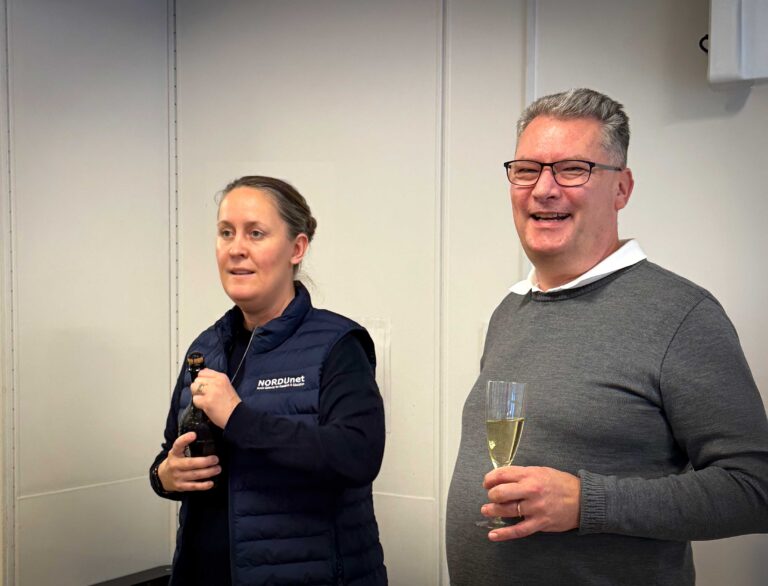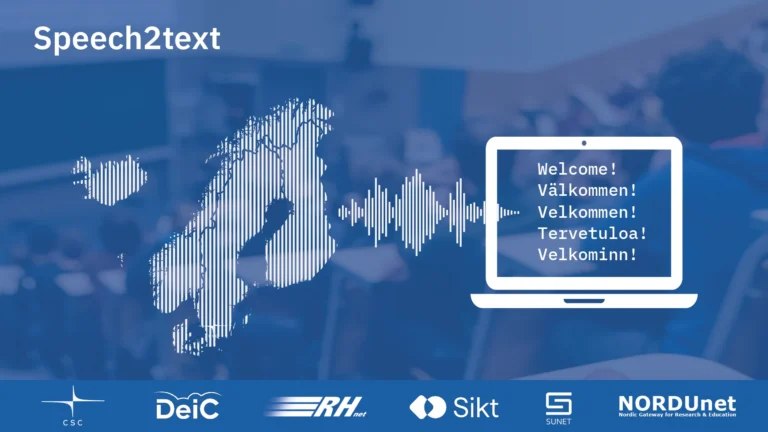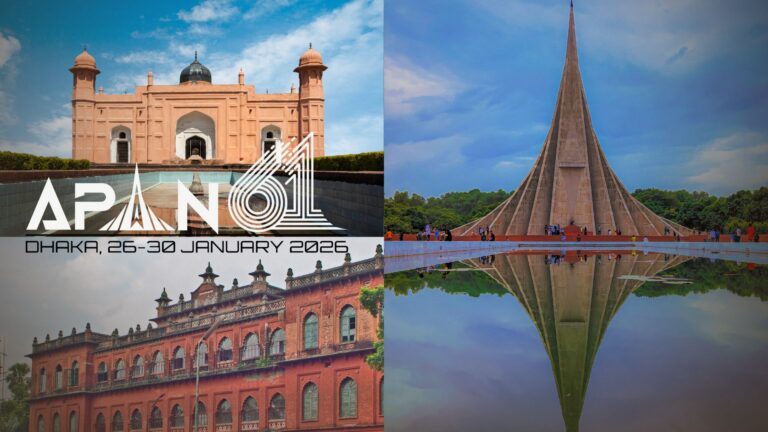A new subsea circuit to Ireland and upgrade of existing connections safeguard digital sovereignty of Icelandic research and education collaborations.
Significantly more detailed weather forecasts for Iceland will be one of the first everyday products of a new fiber connection established by Iceland’s national research and education network RHnet, NORDUnet, and partners.
Through the lease of a dedicated circuit at the newly established IRIS subsea cable connection from Ireland to Iceland, RHnet and NORDUnet will provide the Icelandic research and education sector with both additional capacity and redundancy. Coinciding with the inauguration of the new circuit, the two existing NORDUnet connections to Iceland are being upgraded.
A new high-performance computing (HPC) centre for meteorology, jointly used by the meteorological services in Denmark, Ireland, the Netherlands and Iceland, has recently been established in Reykjavik. Combined with the network upgrade, this will allow more detailed dataset to be analysed.
Besides improved weather forecasts, exchange of datasets related to genomics are expected to be among the first applications. Iceland holds a rich tradition within genomics research, and since the field depends on exchange of large datasets, better connectivity is invaluable to the interplay between national and international research groups.
“Further, many other uses will appear. This is always the case, as a new connection opens and users realize the potential, “says Lars Bjørn, of the NORDUnet Network Service and Technology Division.
Goal of three independent connections reached
Besides the immediate improvements for Icelandic research and education, the new circuit has a wider importance, notes Lars Bjørn:
“In accordance with NORDUnet’s overall strategy we want to supply all Nordic countries with a minimum of three independent connections to the global R&E network. This is to ensure redundancy in situations with breakdowns or flooding of a given connection. Due to its remote location, Iceland was the last Nordic country to get three connections. We are truly pleased to reach this longstanding goal.”
The speed of the new circuit is 100 Gbps (Gigabits per second). Further, both already existing Icelandic connections – the FARICE circuit to Scotland and the DANICE circuit to Denmark – are being upgraded to 100 Gbps.
“Since 100 Gbps is the current standard for most international optical connections, it is highly satisfying that we have been able to bring all three Icelandic connections to this level,” says Lars Bjørn.
The new circuit dedicated to research and education is a part of the IRIS subsea telecoms cable. Inaugurated by late 2022, the cable connects Galway, Ireland, with Reykjavik, Iceland. The cable is operated by Farice, a company owned by the Icelandic government.
Smooth R&E collaboration
From the landing site in Galway, the Icelandic research and education data are transported to Dublin by Farice. NORDUnet has not had a point of presence in Dublin, but through collaboration between NORDUnet and the Irish national research and education network HEAnet a new site has been added to the NORDUnet IP backbone.
“This is the first partnership between NORDUnet and HEAnet, so again a new strategic gain for us,” says Lars Bjørn, adding:
“This is yet another example of the advantages of having national research and education networks. HEAnet was present at the demarcation point of the new circuit and due to the pragmatic and flexible way that NRENs work NORDUnet has been able to turn up a new site in no time. Had this been a commercial environment, this would have been more difficult, and time consuming. But coming from the research and education community there is a high level of trust, and collaboration is very straightforward.”
The NORDUnet / HEAnet collaboration also allows data from the Irish meteorological services to be transported directly to the HPC facility in Reykjavik, greatly improving the performance. The network latency from Dublin to Reykjavik has been reduced from more than 50ms to 25ms.
From Dublin, the new NORDUnet site is connected to an existing site in London through a connection provided by pan-Euroean research and education network GÉANT.





